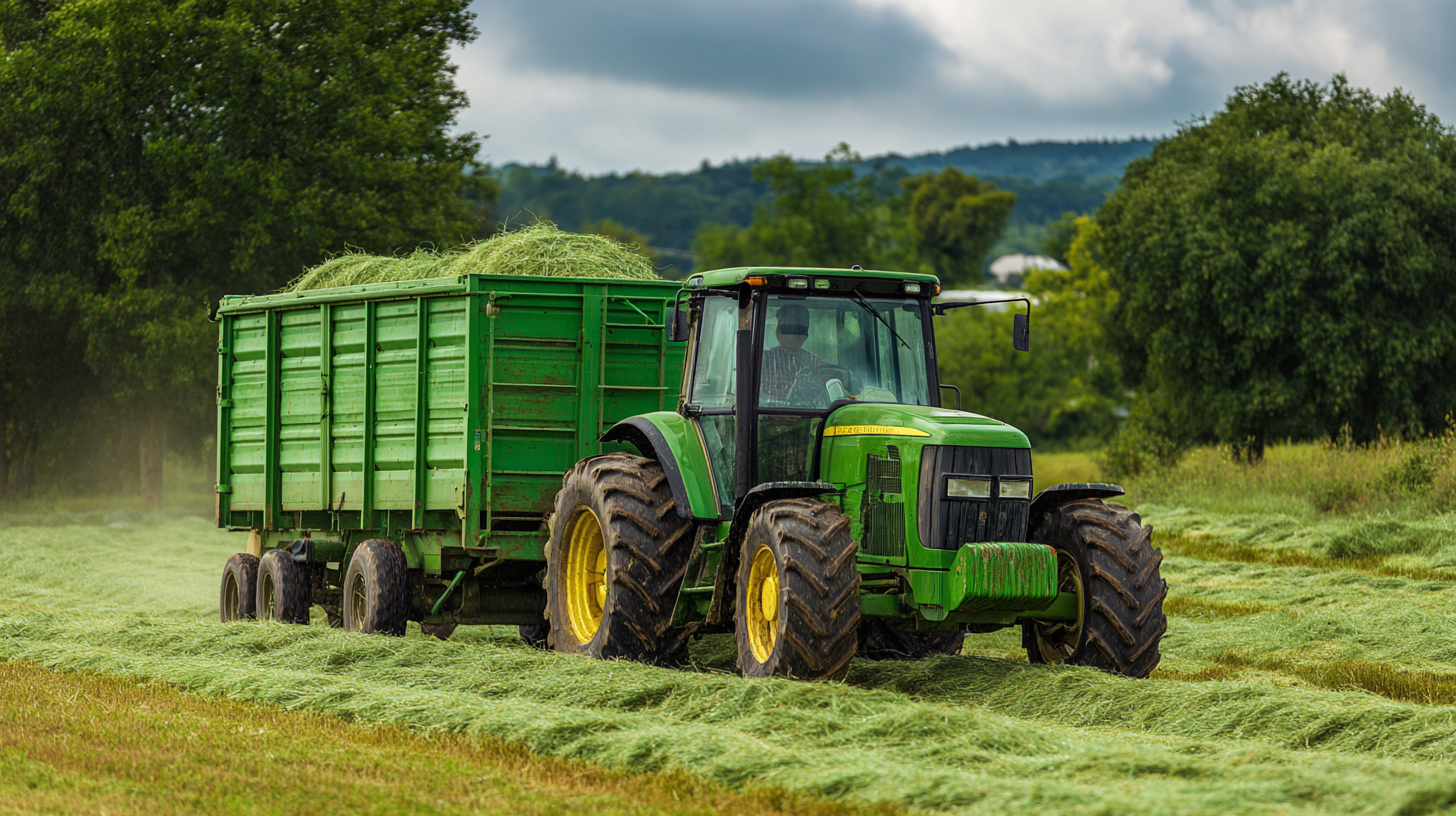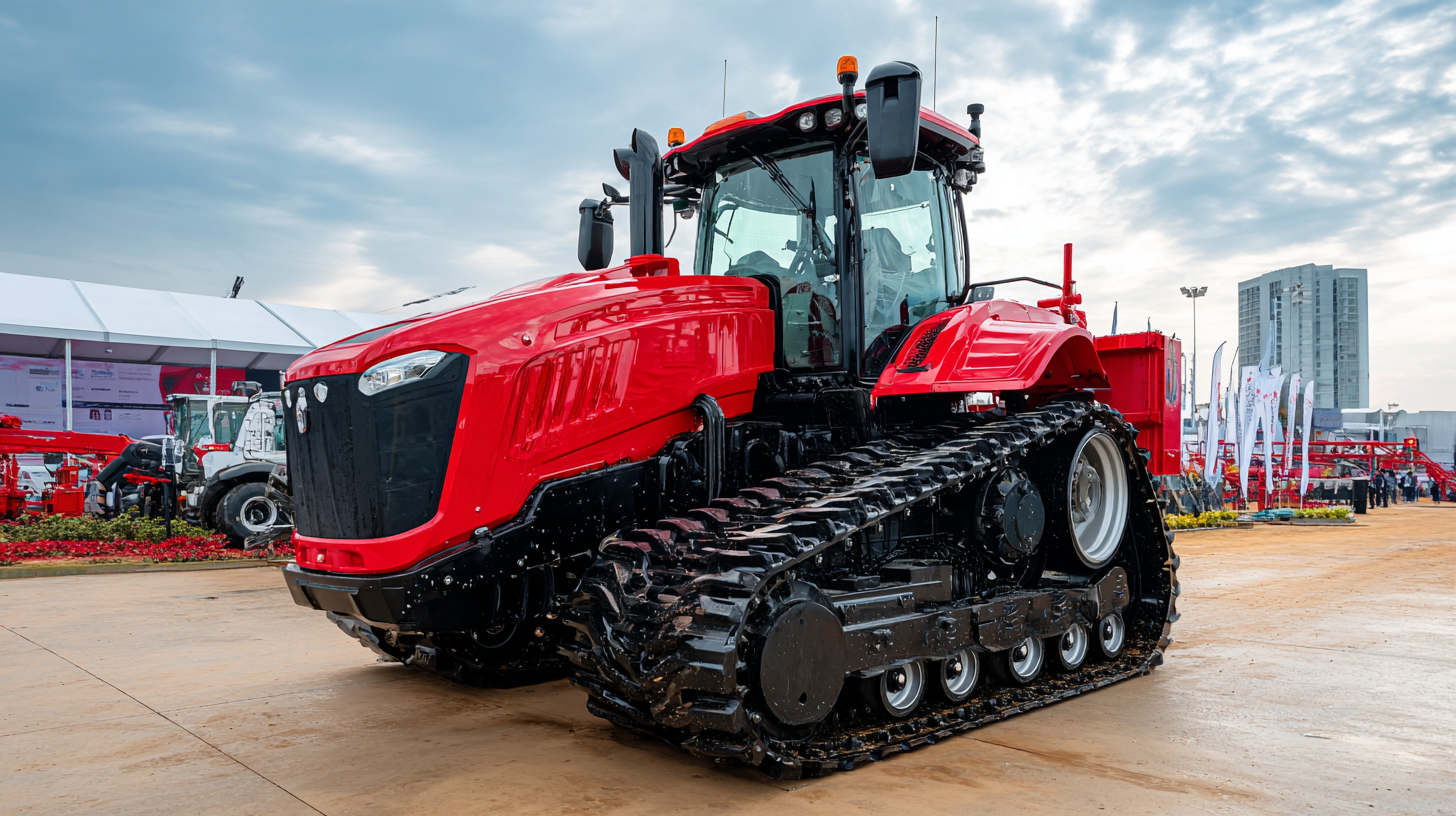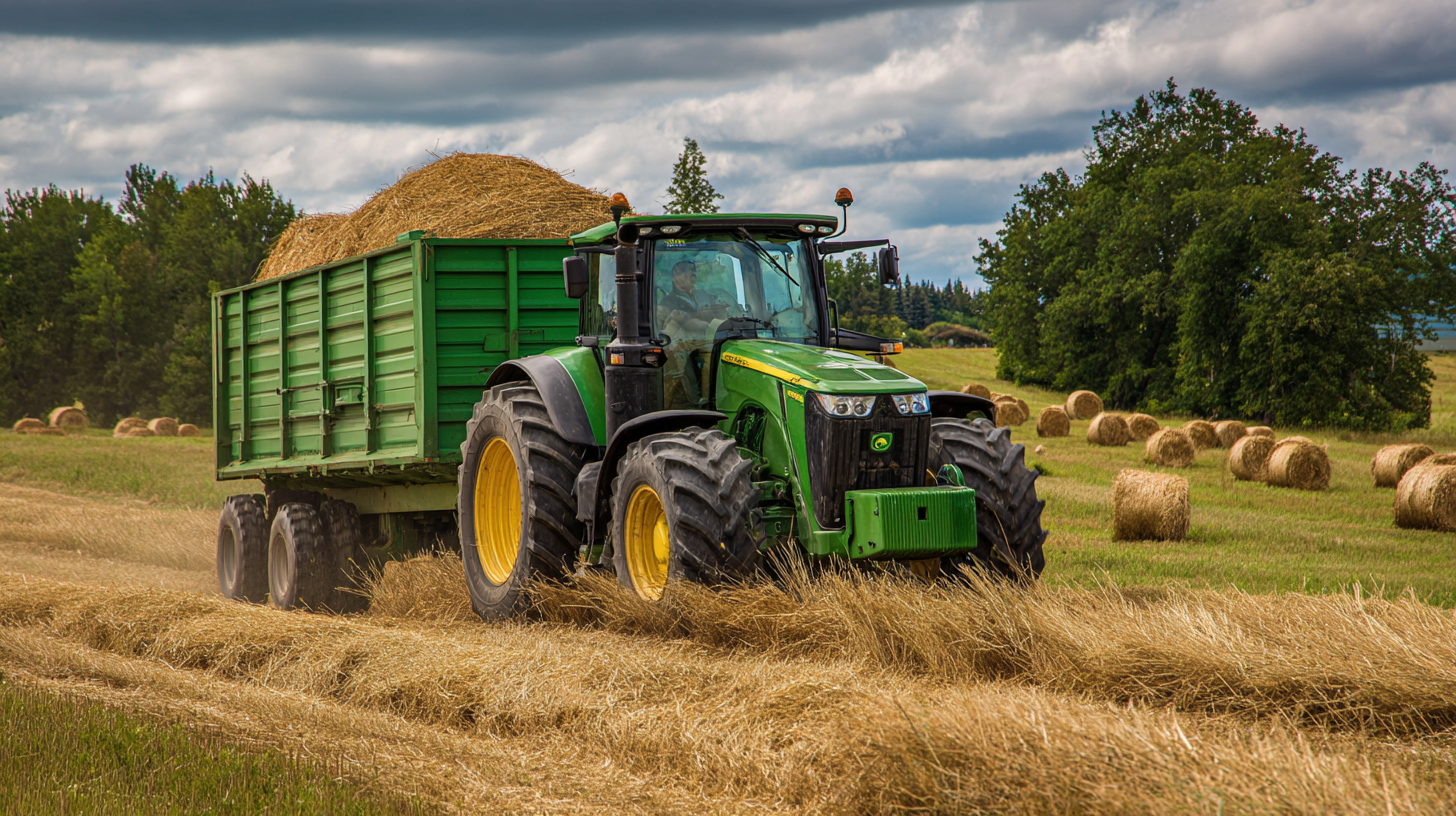As the agricultural sector continuously evolves, the significance of tractor farm equipment remains paramount for enhancing productivity and efficiency on global farms. According to the latest market analysis report by MarketsandMarkets, the global tractor market is projected to grow from USD 56.67 billion in 2020 to USD 82.88 billion by 2025, at a compound annual growth rate (CAGR) of 7.9%. This growth underscores the increasing demand for innovative solutions and alternatives in tractor farm equipment, as farmers seek to optimize their operations amidst rising labor costs and changing environmental regulations. Innovative technologies such as precision agriculture tools and advanced automation systems are transforming the landscape of agricultural machinery, offering global buyers a plethora of options tailored to diverse farming needs. By exploring these alternatives, stakeholders can not only boost efficiency but also contribute to sustainable farming practices, ensuring the viability of agriculture in the years to come.

The landscape of agriculture is rapidly evolving as innovative farming solutions extend far beyond traditional tractor equipment. Recently, advancements in precision farming have gained traction, offering farmers data-driven insights that enhance crop management and promote sustainability. For instance, precision agriculture techniques have been shown to increase crop yields by up to 30%, all while significantly reducing water usage. These developments allow farmers to make informed decisions regarding irrigation, fertilization, and pest control, ultimately leading to more efficient and environmentally responsible farming practices.
In addition to precision farming, the emergence of smart irrigation systems is transforming how farmers approach water management. By integrating advanced sensors and satellite data, these systems provide real-time information on soil moisture levels, enabling farmers to optimize their irrigation efforts. As seen in regions like Alberta, such innovations are pivotal for improving crop yields and resource management. The focus on sustainable and intelligent solutions marks a new era in agriculture, showcasing the potential of technology to create a more productive and eco-friendly future. For global buyers, exploring these alternatives opens up opportunities to invest in equipment that not only enhances efficiency but also aligns with an ethos of environmental stewardship.
| Innovative Equipment | Type | Benefits | Suitable Crops | Approximate Cost |
|---|---|---|---|---|
| Autonomous Robot Farm Equipment | Robotics | Labour reduction, precision planting | Vegetables, Fruits | $25,000 - $50,000 |
| Smart Irrigation Systems | Irrigation | Water conservation, efficiency | Cereals, Vegetables | $5,000 - $15,000 |
| Vertical Farming Units | Agricultural Structure | Space efficiency, year-round production | Greens, Herbs | $10,000 - $100,000 |
| Drones for Crop Monitoring | Aerial Technology | Real-time data collection, efficient pest control | Various Crops | $1,000 - $5,000 |
| Biodegradable Seed Dispensers | Seed Technology | Reduced waste, enhanced germination | All Crop Types | $500 - $2,000 |
As the global agricultural landscape evolves, the push for eco-friendly farm equipment becomes increasingly vital. Innovative technologies such as 3D printing are revolutionizing smart farming, enabling the customization of machinery and tools to meet specific farm needs. For instance, adjustable and autonomous equipment like drones and robotics can enhance efficiency while reducing resource consumption. In a recent report, it's projected that by 2025, sustainable farming equipment will account for a significant share of the market, driven by rising consumer demand for environmentally conscious practices.
Additionally, advancements in algal biorefineries present a strong alternative for sustainable agriculture, converting micro- and macroalgal biomasses into biofuels and high-value products. This focus on bioproducts not only addresses energy challenges but also contributes to environmental sustainability—further supporting the industry's transition toward greener methods. As reported, the adoption of renewable energy sources in agriculture is expected to grow significantly in the next few years, paving the way for enhanced energy management in farming operations. These emerging trends underscore the urgency and opportunity for agriculture to embrace sustainability and innovative practices, ensuring a more resilient future for global food systems.

 The integration of technology into modern agriculture has led to the emergence of smart farming devices that enhance efficiency and productivity. The Internet of Things (IoT) plays a pivotal role by connecting various devices on the farm, allowing for real-time data collection and analysis. This progress not only streamlines processes but also aids farmers in making informed decisions about crop management and resource allocation. By harnessing these innovations, farmers can significantly reduce waste and improve overall sustainability.
The integration of technology into modern agriculture has led to the emergence of smart farming devices that enhance efficiency and productivity. The Internet of Things (IoT) plays a pivotal role by connecting various devices on the farm, allowing for real-time data collection and analysis. This progress not only streamlines processes but also aids farmers in making informed decisions about crop management and resource allocation. By harnessing these innovations, farmers can significantly reduce waste and improve overall sustainability.
Tip: To maximize the benefits of IoT in agriculture, invest in sensors that monitor soil health, moisture levels, and crop conditions. These insights can guide irrigation practices and fertilization schedules, ultimately leading to healthier crops and increased yields.
Moreover, artificial intelligence (AI) is revolutionizing farming practices by providing tools that enhance decision-making. AI-powered analytics can help predict crop performance and inform strategic planning. For instance, advanced algorithms can analyze historical data and current conditions to suggest the best planting times and crop varieties.
Tip: Incorporate AI-driven tools into your farming routine. Using these technologies, farmers can automate routine tasks such as crop spraying and monitoring, allowing for more efficient use of time and resources while ensuring precision in application and care.
In today’s agricultural landscape, cost-effective farming equipment is becoming increasingly essential for farmers worldwide. According to a report by the Food and Agriculture Organization (FAO), nearly 70% of global farmers operate on a budget that constrains their ability to purchase high-end machinery. As a response, innovative alternatives to traditional tractor farm equipment are gaining traction. For instance, small-scale farmers are increasingly turning to multi-functional tools like tillers and planters that offer versatility without the hefty price tag. These tools can significantly reduce operational costs while increasing productivity, as highlighted in a survey by the International Society of Agricultural Engineers, which noted a 30% increase in efficiency among farms that adopted such technology.
Moreover, companies are stepping up to the plate, providing affordable yet durable options tailored to budget-conscious farmers. The market for second-hand or refurbished farm equipment has seen tremendous growth, with estimates suggesting a 15% annual increase in transactions over the past five years. This trend reflects a shift towards sustainability and cost-effectiveness, allowing farmers to get the most value from their investments. With an increasing focus on budget-friendly solutions that maintain efficiency, the agricultural sector is on a path to empower every farmer, regardless of size or financial capability.
In recent years, farmers around the globe have begun to embrace innovative solutions that significantly enhance efficiency and productivity on their farms. One remarkable case study comes from India, where a community of farmers turned to solar-powered irrigation systems. This approach not only reduced their dependency on conventional electricity sources but also cut down on costs while providing a sustainable solution to water management. By harnessing solar energy, these farmers have transformed their operations, enabling year-round cultivation and improving yield quality.
Another inspiring example can be found in the precision farming techniques adopted in the United States. Farmers have started utilizing drones and satellite technology to monitor crop health and soil conditions. By analyzing data collected from these high-tech tools, they can make informed decisions about planting, watering, and fertilizing their crops. This method has led to a significant decrease in waste and a rise in overall productivity, showcasing how technology can be effectively integrated into traditional farming practices for a more sustainable future.